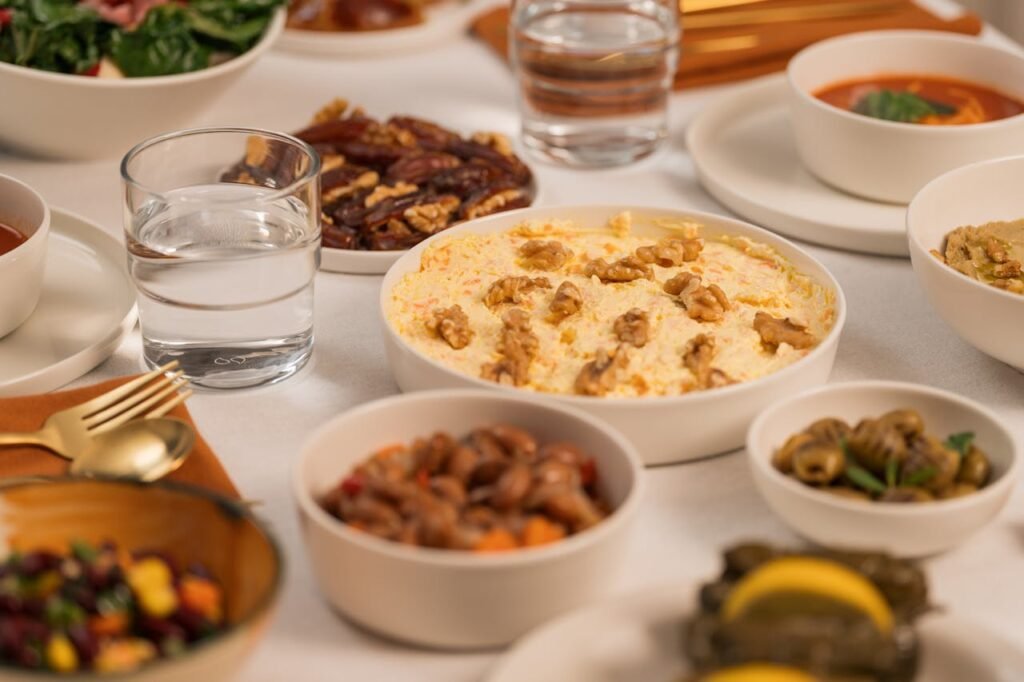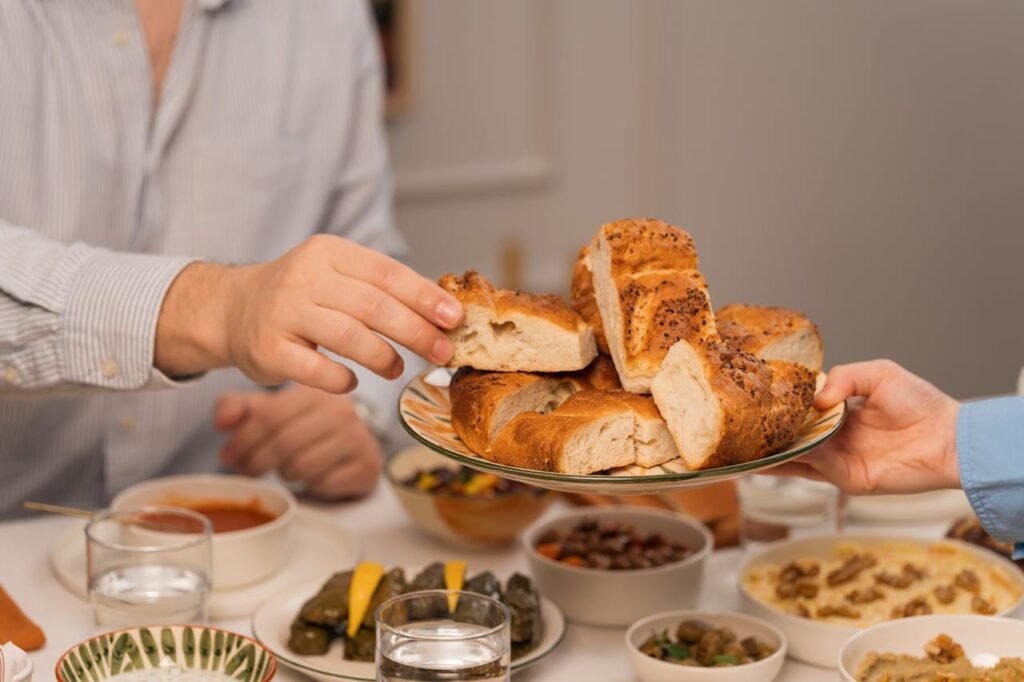As the sacred month of Ramadan approaches, Muslims worldwide prepare for a spiritual journey marked by fasting, prayer, and reflection, exploring the transformative power of vitamin-enriched foods.

But amidst the rituals and observances, it’s essential not to overlook the importance of nourishing our bodies with the nutrients they need to thrive. Enter Ramadan vitamin food – a crucial component of ensuring we stay healthy and energized throughout this sacred time.
Understanding the Importance of Vitamins During Ramadan
Fasting during Ramadan means abstaining from food and drink from dawn until sunset, which can
span up to 16 hours or more, depending on geographical location and time of year. During this time,
our bodies rely on stored energy reserves to sustain us through the day, making it vital to consume
nutrient-rich foods during the pre-dawn and sunset meals, known as Suhoor and Iftar, respectively.
Vitamins play a crucial role in maintaining our overall health and well-being, supporting everything
from immune function to energy production. And during Ramadan, when our bodies are undergoing
extended periods of fasting, ensuring we get an adequate intake of vitamins becomes even more
critical.
Vitamins and Nutrient-Rich Foods for Suhoor
Suhoor, the pre-dawn meal before the fast begins, serves as our fuel for the day ahead. It’s essential
to choose foods that are not only filling but also packed with essential vitamins and nutrients to
sustain us through the fasting hours.
One of the most important vitamins to focus on during Suhoor is vitamin B, which plays a key role in
energy metabolism and helps combat fatigue. Incorporating foods rich in vitamin B, such as whole
grains, eggs, dairy products, and leafy greens, into your Suhoor meal can help keep your energy
levels steady throughout the day.
Additionally, don’t forget about vitamin C, which is essential for immune function and can help ward
off illness during Ramadan. Load up on fruits like oranges, strawberries, and kiwis, as well as
vegetables like bell peppers and broccoli, to ensure you’re getting an adequate intake of this vital
nutrient.
Vitamins and Nutrient-Rich Foods for Iftar
After a long day of fasting, Iftar is a time to replenish your energy stores and nourish your body with
wholesome, nutrient-rich foods. Opting for a balanced meal that includes a variety of vitamins and
minerals is key to supporting your overall health and well-being during Ramadan.
Start by breaking your fast with dates and water, as tradition dictates, to replenish your energy levels
and hydrate your body after a day of fasting. Dates are not only rich in natural sugars to provide a
quick energy boost but also packed with essential vitamins and minerals, including potassium,
magnesium, and vitamin B6.
For the main course, aim to include lean proteins, whole grains, and plenty of fruits and vegetables
to ensure you’re getting a diverse array of vitamins and nutrients. Foods like grilled chicken or fish,
brown rice or quinoa, and a colorful salad or vegetable stir-fry can provide the vitamins and minerals
your body needs to thrive during Ramadan.
Creating a Vitamins Food List and Chart for Ramadan
To ensure you’re meeting your nutritional needs during Ramadan, consider creating a vitamin food
list and chart to guide your meal planning. Include a variety of vitamin-rich foods from each food
group to ensure you’re getting a diverse array of nutrients throughout the month.

Here’s a sample of vitamins list with food names and a chart to help you get started:
Vitamin A:
Foods: Sweet potatoes, carrots, spinach, kale, apricots
Sample Meal: Spinach and feta omelet with sweet potato hash browns
Vitamin B:
Foods: Whole grains, eggs, dairy products, leafy greens, nuts
Sample Meal: Whole grain toast with avocado and scrambled eggs
Vitamin C:
Foods: Oranges, strawberries, kiwis, bell peppers, broccoli
Sample Meal: Grilled chicken breast with roasted bell peppers and broccoli
Vitamin D:
Foods: Fatty fish (salmon, mackerel, sardines), fortified dairy products, eggs
Sample Meal: Baked salmon with sautéed spinach and quinoa
Vitamin E:
Foods: Nuts (almonds, sunflower seeds), seeds (sunflower, pumpkin), spinach, avocado
Sample Meal: Quinoa salad with spinach, avocado, and sunflower seeds
Vitamin K:
Foods: Leafy greens (kale, spinach, collard greens), broccoli, Brussels sprouts
Sample Meal: Grilled chicken Caesar salad with kale and broccoli
Incorporating Vitamins and Supplements into Your Ramadan Routine
In addition to focusing on nutrient-rich foods, incorporating vitamins and supplements into your
Ramadan routine can help ensure you’re meeting your nutritional needs. Consider taking a
multivitamin to cover any gaps in your diet and supplementing with specific vitamins or minerals if
you have particular dietary restrictions or deficiencies.
It’s essential to consult with a healthcare professional before starting any new supplement regimen, especially during Ramadan when your dietary habits may be different than usual. They can help you
determine which vitamins and supplements are right for you and ensure you’re taking them safely
and effectively.
Nourish Your Body, Nourish Your Soul
As we embark on the sacred journey of Ramadan, let us remember the importance of nourishing our
bodies with the vitamins and nutrients they need to thrive. By incorporating nutrient-rich foods into
our Suhoor and Iftar meals, creating a vitamin food list and chart to guide our meal planning, and
supplementing as needed, we can support our overall health and well-being during this holy month.
May this Ramadan be a time of spiritual growth, reflection, and renewal for all, and may we emerge
from it with hearts and bodies nourished and strengthened for the journey ahead. Ramadan
Mubarak!
